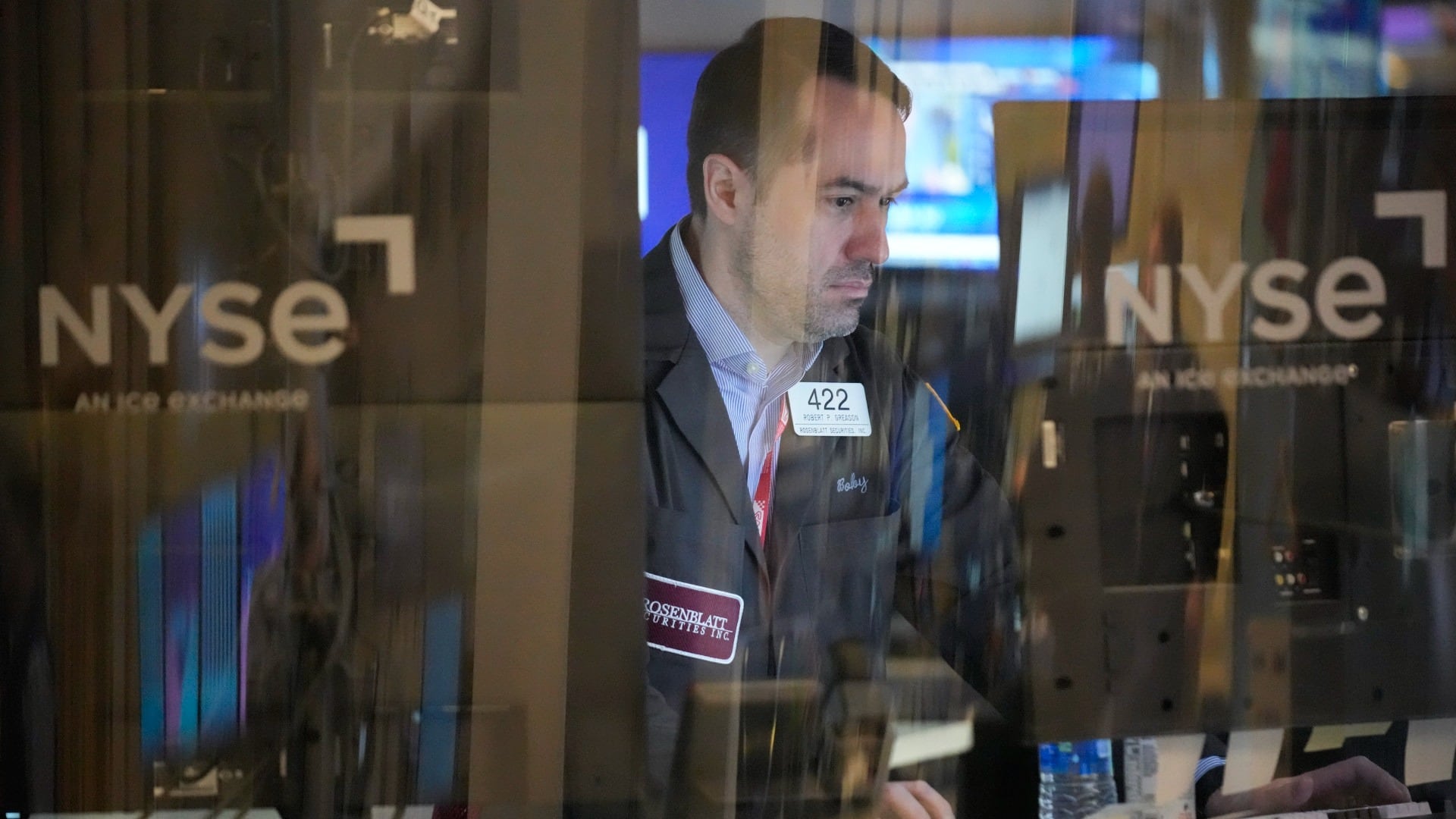By Stan Choe
Wall Street rose Monday as traders made their final moves ahead of a report that could show whether inflation is cooling in the right way or setting the market up for worse pain.
The S&P 500 climbed 1.1% in anticipation of Tuesday’s report on inflation at the consumer level across the country. The Dow Jones Industrial Average gained 376.66 points, or 1.1%, while the Nasdaq composite rose 1.5%.
Stocks were coming off their worst week in nearly two months, the latest stumble for a market that has struggled for more than a year on worries about high inflation and the Federal Reserve’s response to it. The Fed has aggressively hiked rates to their highest level since 2007 to drive down the worst inflation in generations. High rates can stamp out inflation, but they do so at the risk of sending the economy into a sharp recession and dragging on investment prices.
Economists expect Tuesday’s report to show inflation slowed to 6.2% in January. That would be down from 6.5% a month before and from a peak of more than 9% in the summer. Perhaps more important than the overall number is what the data show specifically about prices for services outside of housing, such as haircuts or airfares. Inflation has remained stubbornly high there, when it’s started to come down in other areas.
Worse-than-expected trends on inflation would raise worries that the Federal Reserve will stay firmer on rates than expected, which could mean more pain for Wall Street. Cooler-than-expected figures, meanwhile, could fan anew hopes that were rising earlier this year for the Fed to take it easier on rates.
Everyone agrees that inflation is heading in the right direction. The question is how quickly and steadily it will come down to the Fed's target of 2%, and what that means for when the Fed will pause its hikes to rates and eventually begin cutting them.
Treasury yields jumped last week after investors pulled their forecasts for rates closer to the Fed's. The central bank has been consistently saying it plans to keep rates higher for longer to ensure the job is done on inflation.
Yields were mixed Monday ahead of the inflation report. The yield on the 10-year Treasury, which helps set rates for mortgages and other important loans, dipped to 3.70% from 3.75% late Friday. The two-year yield, which tends to move more on expectations for the Fed, was at 4.54% and close to its highest since November.
All the worries about inflation and rates are happening against the backdrop of a decidedly lackluster earnings reporting season. Companies in the S&P 500 are on track to report a nearly 5% drop in earnings for the final three months of 2022, compared with a year earlier, according to FactSet.
By the count of strategists at Credit Suisse, this is shaping up to be the worst earnings reporting season outside of a recession in 24 years.
Pessimism is also building about earnings for the first three months of 2023, with forecasts coming down.
A continued decline in corporate earnings is one of the reasons strategists at Morgan Stanley are cautious about the rally stocks have made since the start of the year, even if they gave back some of it last week. The S&P 500 is up 7.8% for 2023 so far, though it remains stuck in its "bear market” after falling more than 20% from its high last year.
“Price action is not reflective of the deteriorating fundamentals or the fact that the Fed is hiking during an earnings recession — drivers that should ultimately determine the lows for this bear market later this spring,” the strategists led by Michael Wilson wrote in a report. “Risk-reward is as poor as it’s been in our view.”
The bulk of earnings reports have already come in for this season, with big utility companies and retailers among the companies toward the tail end. This upcoming week will include reports from Southern Co., Coca-Cola and Kraft Heinz.
Fidelity National Information Services tumbled 12.5% despite reporting slightly stronger profit and revenue for its latest quarter than expected. FIS gave a forecast for 2023 results that fell short of Wall Street’s expectations, and it said it will spin off its Worldpay merchant business after acquiring it in a deal less than four years ago.
On the winning end was Henry Schein, a provider of health care products and services. It rose 3.2% after it announced a program to buy back up to $400 million of its stock. Investors like such programs because they put cash directly in the pockets of shareholders.
All told, the S&P 500 rose 46.83 points to 4,137.29, the Dow gained 376.66 to 34,245.93 and the Nasdaq climbed 173.67 to 11,891.79.













